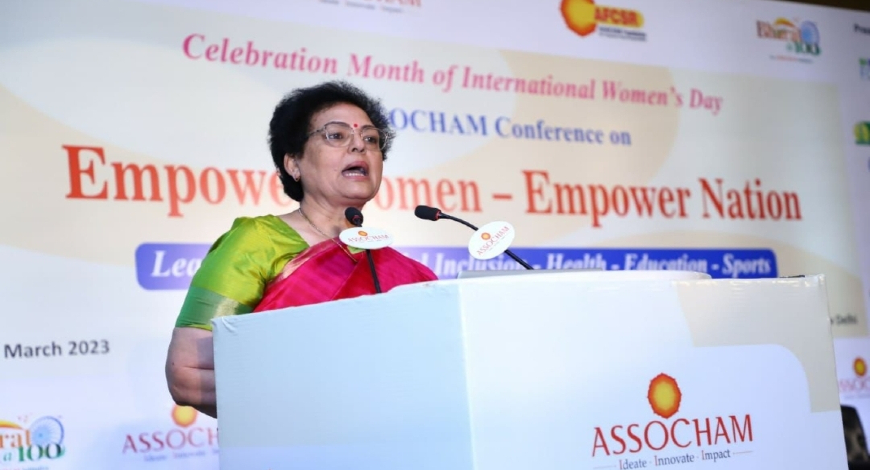Indian women are already empowered but still need an opportunity to showcase their talents and abilities to the world, according to the chairperson of the National Commission for Women (NCW), Rekha Sharma.
“The central government has taken several proactive measures in the last few years to empower the country’s female workforce. However, we still talk about the security and safety of women. No country can talk about empowerment unless every girl child and every woman are safe and secure not only outside but also inside their homes,” speaking at an interactive session organised by the apex trade association, ASSOCHAM, on Wednesday, Sharma said.
“There is a need to ensure that all public places are safe for women to travel, regardless of the time during which they want to travel. There is a need to change the mindset not only for men but also for women as well. Because it is usually the women in the family who prevent the girls from going outside. Families also need to give equal opportunities to the girl child to grow,” she went on to say.
Anil Rajput, Chairperson, Assocham National CSR Council and President, Corporate Affairs, ITC, spoke about women’s empowerment. While he praised the strength of women, he also reaffirmed that 50 per cent of the population must be treated equally if the country is to achieve sustainable development.
“The priority of the country is to improve the lives of women and increase participation so that New India collectively takes responsibility for empowering women,” Rajput added.
Golfer and social activist Neelam Pratap Rudy spoke about the importance of a work-life balance, empowering women through financial inclusion and encouraging entrepreneurship.
Dr Aishwarya Mahajan, President, M3M Foundation, stated that empowered women are changing the perception of an empowered nation.
“Girl children are demonstrating their roles and duties in terms of building society, even in small cities. We are encouraging women’s sense of self-worth, their autonomy in making decisions, and their entitlement to have an impact on societal change for both themselves and other people,” she commented.
“Empowering women would enable them to make their own decisions. During the years, women have suffered a lot from violence and discrimination, and it is high time to bridge the gender gap,” stated Dr Upasana Arora, Chairperson, Yashoda Super Specialty Hospital and Chairman, ASSOCHAM National Empowerment Council.

